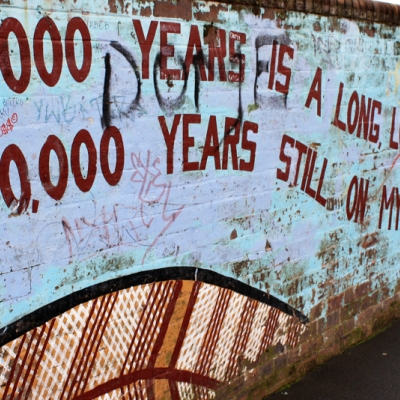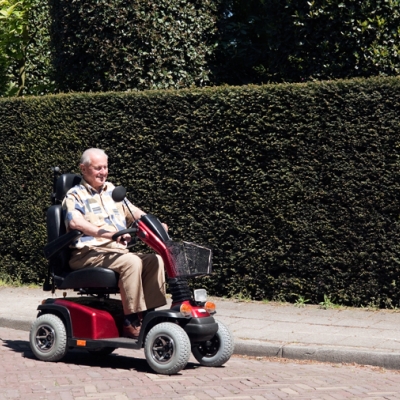Refine results
-
Rights and Freedoms20 May 2014Opinion piece
Twitter trolls have a right to offend – but we don't have to listen
Storms on social media demonstrate we don't need laws to regulate free speech – social norms are enough Internet outrage tells us more about how we ensure civil conduct face-to-face, than how we behave online. People behave in strange ways online. But social media provides the clearest evidence of people behaving on their first instinct. All that the internet has demonstrated is there were… -
Sex Discrimination20 May 2014Publication
Recognising and responding to sexual harassment in the workplace
What is sexual harassment? Sexual harassment is any unwelcome conduct of a sexual nature. If a reasonable person would anticipate this behaviour might make you feel offended, humiliated or intimidated, it may be sexual harassment. Sexual harassment is unlawful under the Sex Discrimination Act 1984 (Cth) . Some examples of behaviour that may be sexual harassment include: Sexually suggestive … -
Aboriginal and Torres Strait Islander Social Justice19 May 2014Submission
ALRC: Review of the Native Title Act 1993
Australian Human Rights Commission Submission to the Australian Law Reform Commission ALRC: Review of the Native Title Act 1993 14 May 2014 Downloads Download in PDF Download Word Table of Contents 1 Introduction 2 Recommendations 3 General Comments 4 The Native Title Act and its consistency with international human rights standards 4.1 The United Nations Declaration on the Rights of… -
Rights and Freedoms19 May 2014Opinion piece
Opening minds to ‘forgotten freedoms’
Opinion by Human Rights Commissioner, Tim Wilson. First published in The Australian on 17 May 2014. Reform is not the end of debating free speech in Australia, it is the beginning The “forgotten freedoms” provide the foundations of our liberal democracy, and we have to reconnect with them. There are competing views about how human rights and freedoms should be approached. After all, human… -
Commission – General16 May 2014Webpage
Employees
All employees have the right to work free from sexual harassment. To help you figure out where the line is and give you some ideas about how to take bystander action if you see or hear about sexual harassment, we have developed a range of information resources as part of our Know Where the Line Is strategy. For an audio described version of the video click here. Click here to download… -
Commission – General16 May 2014Webpage
Employers
The Australian Human Rights Commission, Australian Chamber of Commerce and Industry and the Australian Council of Trade Unions are working together to create safe and equal workplaces in Australia. Sexual harassment can have a serious and damaging effect on a workplace. It can result in productivity losses, reputational damage, increases in sick and stress leave, more workplace health… -
Commission – General13 May 2014Webpage
2012 Human Rights Medal and Awards Winners
Human Rights Medal Ian Thorpe OAM His exploits in the pool have made him a household name, but what is less known is that Ian Thorpe has spent more than a decade as a passionate advocate for Indigenous people and young Australians. His Fountain for Youth charity is working with twenty remote communities across the country. Thorpe has taken a hands-on role in his Fountain for Youth charity,… -
Aboriginal and Torres Strait Islander Social Justice12 May 2014Webpage
Self-determination
Relevant Articles: Articles 3, 4 and 5 Self-determination is the central right of the Declaration. All other rights support Aboriginal and Torres Strait Islander peoples’ exercise of self-determination. All Indigenous peoples have this right. Self-determination can mean different things to different groups of people. At its core, self-determination ‘is concerned with the fundamental right of… -
Aboriginal and Torres Strait Islander Social Justice12 May 2014Webpage
Participation in decision making
Learn how Indigenous Peoples have the right to participate in decision-making that affects their rights and through the representatives that they choose. -
Aboriginal and Torres Strait Islander Social Justice12 May 2014Webpage
Respect for and protection of culture
Relevant Articles: Language cultural and spiritual identity: discusses the parts of the Declaration around protecting and promoting Indigenous peoples cultural rights. (Article 11, 12, 13) Rights to country, resources and knowledge. (Articles 25-32) We, as Aboriginal and Torres Strait Islander peoples, belong to the longest continuous cultures in the world The Declaration asserts our rights… -
Aboriginal and Torres Strait Islander Social Justice12 May 2014Webpage
Non-discrimination and equality
The only instance that differential treatment is acceptable is when it undertaken to attempt to secure substantive equality for Aboriginal and Torres Strait Islander peoples. -
Aboriginal and Torres Strait Islander Social Justice8 May 2014Project

The Declaration dialogues
If we are serious about implementing the Declaration on the Rights of Indigenous Peoples, an overarching policy framework based on human rights standards is essential to ensuring a holistic approach that addresses the needs and priorities identified by Aboriginal and Torres Strait Islander peoples and communities. A national conversation progressed through a series of dialogues was conducted… -
Legal6 May 2014Submission
Inquiry into the Migration Amendment (Regaining Control Over Australia’s Protection Obligations) Bill 2013
1 Introduction The Australian Human Rights Commission makes this submission to the Senate Legal and Constitutional Affairs Legislation Committee in its Inquiry into the Migration Amendment (Regaining Control Over Australia’s Protection Obligations) Bill 2013. The Commission is established by the Australian Human Rights Commission Act 1986 (Cth) and is Australia’s national human rights… -
Disability Rights24 April 2014Project

Mobility Scooters in Registered Clubs
This paper aims to start a discussion about mobility scooters (scooters) and their use within and around Registered Clubs (the Clubs). It has been produced as part of a project initiated by a partnership between the RSL & Services Clubs and the Australian Human Rights Commission. -
Legal17 April 2014Submission
Draft General Comment on Article 12 of the CRPD
Australian Human Rights Commission Submission to the UN Committee on the Rights Of Persons With Disabilities 1 Introduction The Australian Human Rights Commission is Australia’s ‘A status’ national human rights institution, operating in compliance with the Paris Principles. The Commission makes this submission to the UN Committee on the Convention on the Rights of Persons with Disabilities … -
Disability Rights16 April 2014Publication
The good, the bad and the ugly: Design and construction for access
The purpose of this resource is to explain how people with a disability benefit from good design and construction and why precise application of relevant technical specifications is necessary to achieve the greatest level of access for the greatest number of people. -
15 April 2014Book page
Who we are
Australia's peak Aboriginal and Torres Strait Islander and non-Indigenous health bodies, health professional bodies and human rights organisations operate the Close the Gap Campaign. The Campaign's goal is to raise the health and life expectancy of Aboriginal and Torres Strait Islander people to that of the non-Indigenous population within a generation: to close the gap by 2030. It aims to… -
15 April 2014Book page
Executive summary
The commitment to close the Aboriginal and Torres Strait Islander health and life expectancy gap by 2030 was a watershed moment for the nation. Politicians, the Aboriginal and Torres Strait Islander and non-Indigenous health sector, and human rights organisations, made a public stand in committing to this agenda. And so did the Australian public. To date almost 200,000 Australians have… -
Rights and Freedoms8 April 2014Opinion piece
Free speech, the public service and civilising behaviour
Before anyone screams "free speech", they should actually know what they are talking about. Earlier this week the Department of Prime Minister and Cabinet released new social media protocols. The protocols limit the capacity of public servants to make statements that are "harsh or extreme in their criticism of the government, government policies, a member of Parliament from another political… -
Rights and Freedoms8 April 2014Opinion piece
Speaking freely goes to the heart of individual dignity - Opinion Piece
Arguing that old rich white men have too much power is just a backdoor attempt at censorship, writes Human Rights Commissioner Tim Wilson, in an opinion piece first published on 5 April 2014 in The Australian.
Pagination
- First page « First
- Previous page ‹ Previous
- 1
- 2
- 3
- 4
- Current page 5
- 6
- 7
- 8
- 9
- …
- Next page Next ›
- Last page Last »
